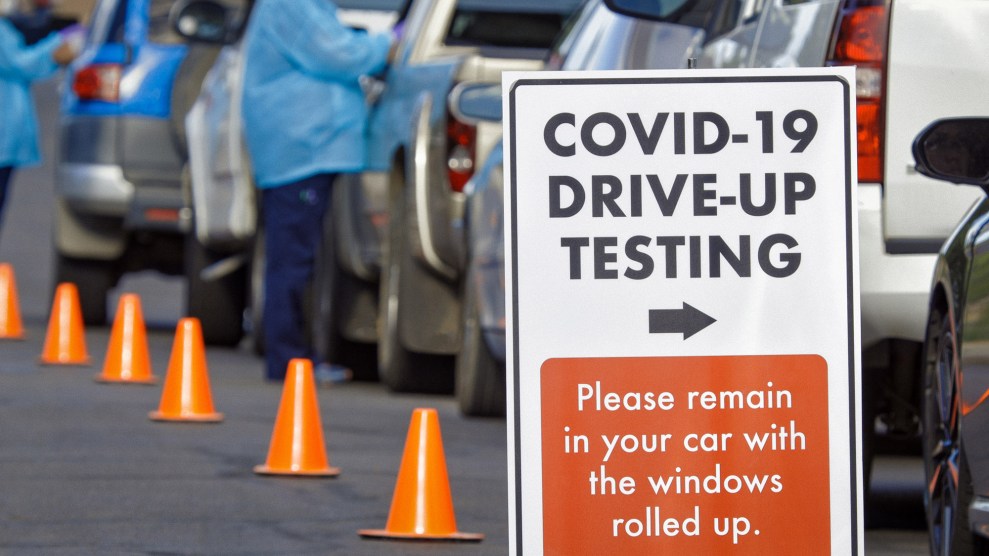
One helpful characteristic of Covid, if there is such a thing, is that those who become infected shed the virus through their poop. Over the last few years, public health officials capitalized on this fact, and built a system to track Covid levels across the country using our sewage. Now, nearly four years after the start of the pandemic, as rates in many states swing upward yet again, the Centers for Disease Control and Prevention has released a helpful new tool for visualizing those trends.
With the agency’s Covid wastewater dashboard, users can chart historic, national Covid trends, identify which variants are on the rise, and view the states where “viral activity levels” are highest, meaning there may be an increased risk of infection. (Today, for instance, the levels are particularly high in the Midwest.)
New wastewater dashboard from the CDC! With national and regional trends at last! This is huge ⬇️⬇️ https://t.co/w4cd4D3yiP
— betsy ladyzhets 📊 (@betsyladyzhets) November 28, 2023
As I’ve reported, the CDC’s National Wastewater Surveillance System, or NWSS, has been around since September 2020. But as CDC advisor Niall Brennan put it, the government’s first wastewater data visualizations were “underwhelming to say the least.” In putting the new dashboard together, he wrote on X, the CDC “willingly ripped up the rule book” to make the charts “more accessible to a wider audience.”
Introducing the brand spanking new CDC wastewater data home https://t.co/jlWlF0XpdF
— Niall Brennan (@N_Brennan) November 29, 2023
Well-understood wastewater data, however, isn’t just for curious nerds. It can also save lives. In March, I visited Houston, Texas—home to one of the country’s most effective wastewater surveillance systems—to see how their local wastewater tracking efforts worked. Here’s a bit of my dispatch from the trip:
[W]hat I found most compelling about Houston’s program is how city officials have used its sewer data to fight the virus. For one, explains Dr. David Persse, the city’s chief medical officer, it’s allowed hospitals to know when to expect a surge in patients, and when to avoid scheduling elective surgeries that would otherwise limit capacity. The city also conducts “pinpoint testing” at sewers just outside of schools, jails, homeless shelters, and assisted living facilities. (This requires a two-person team to physically visit each location and in some cases hoist sampling devices from cockroachey manholes.) Particularly in the early days of Covid, this site-specific testing served as a warning system: If the virus appeared in a nursing home’s wastewater, Persse says, “[we’d] test everybody, all the employees, residents—bada bing, we found it. And then they could control it.” According to Persse, just 8.4 percent of Covid deaths in Houston have been related to long-term care facilities, compared to an estimated 23 percent nationally.
Similarly, at a national level, wastewater surveillance “can be an early indicator that the number of people with COVID-19 in a community is increasing or decreasing,” according to the CDC. As I wrote this summer, it’s a bit like checking the weather, but for Covid. But unlike other types of COVID-19 surveillance methods, like collecting nasal swabs, “wastewater surveillance does not depend on people having access to healthcare, people seeking healthcare when sick, or availability of COVID-19 testing.” And the primary resource it does depend on—poop—is pretty darn reliable.















